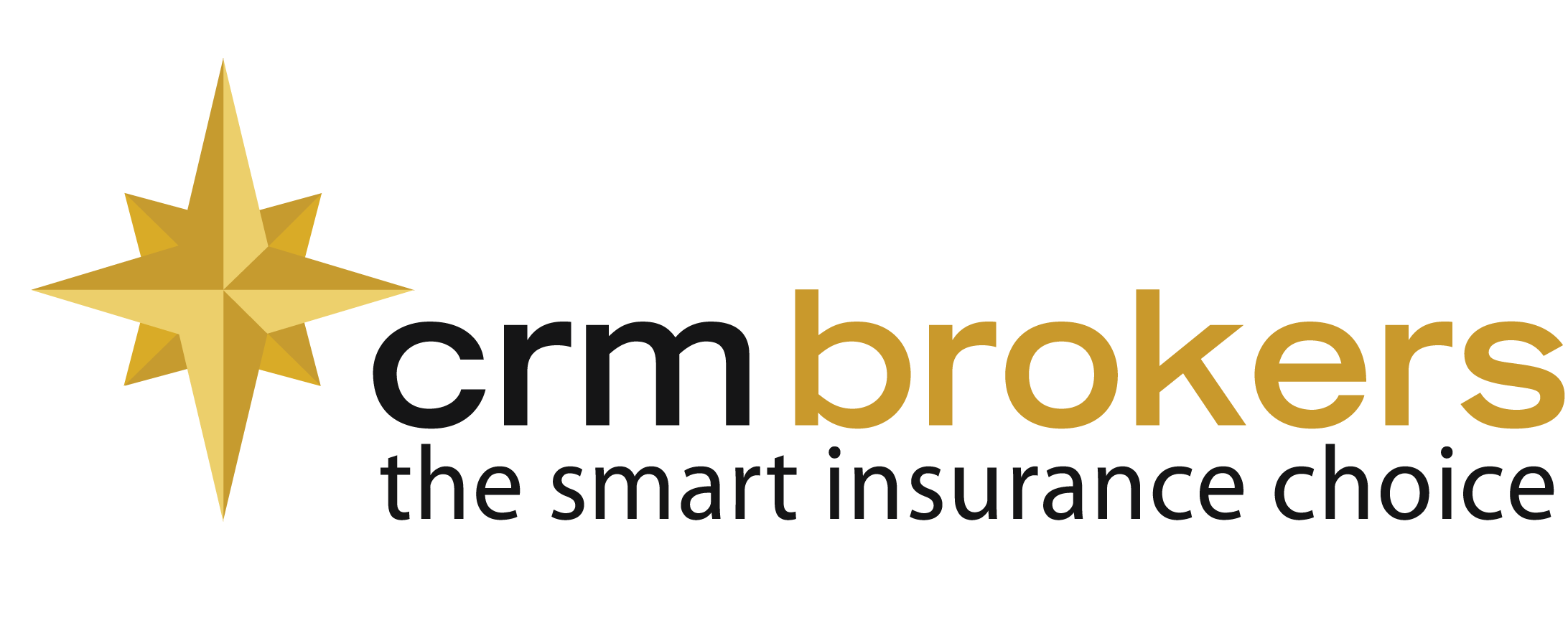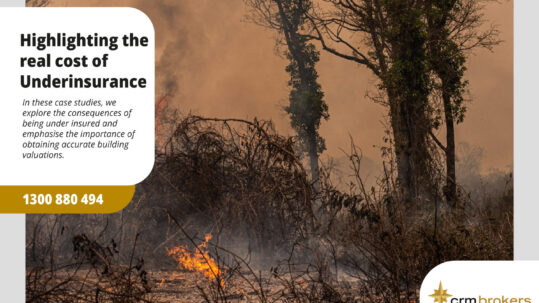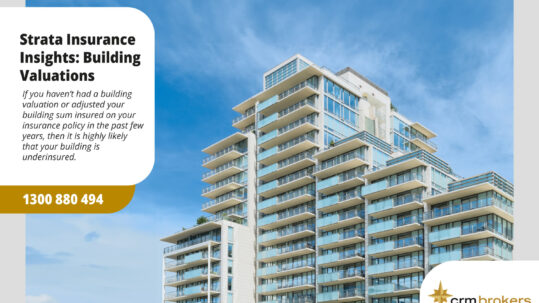
11 Mar Supporting Strata Managers as Insurers’ Risk Appetites Tighten
Supporting Strata Managers as Insurers’ Risk Appetites Tighten
Over the past twelve months, the Australian strata insurance market has experienced several significant catastrophes, including a global pandemic. This, coupled with the continuing risk of non-conforming cladding and a widespread concern around defects and a lack of building maintenance, has left strata insurers reassessing just how much risk they are willing to accept – and at what price.
After discussions with both local and international underwriters, CRM Brokers has validated that the combination of these issues is forcing an accelerated tightening of strata insurers’ risk appetites. This acceleration brings a much sharper focus onto the quality and extent of the risk information required and requested by brokers, as insurers demand full disclosure on all associated risks, before establishing the terms they might be prepared to offer.
A risk appetite is the degree to which an insurer is willing to accept the uncertainty of loss for a given risk, in this instance – an Owners Corporation’s (OC) strata property and associated risks.
Insurers are re-examining their capacity to accept properties, reflected in tighter underwriting criteria. These more confined underwriting guidelines look critically at a range of risk factors that make up the total liability associated with a strata plan. These include risk factors such as the number and value of lots in a building, maintenance and repair status, types of tenancy, quality and type of building materials, number and quantum of claims.
In terms of the type of claims that concern insurers, it is well known that water damage claims are still the most concerning, with data pointing to these claims as being the single largest component of working losses. Other underlying issues that impact risk appetite for insurers include:
- The construction of the external walls, where less than 50% of the material is brick or concrete.
- The presence of combustible materials, such as ACP, EPS – an ongoing topic that has been well discussed (website links below)
Combustible Cladding in the Headlines Again - The type of commercial tenancy, for example industrial and manufacturing, storage of inflammable or hazardous materials such as tyres, plastics, recycling/waste management, chemicals.
Setting ‘Risk Appetite’ is one of the most important instruments used by insurers to ensure their portfolios remain stable and profitable. It is why appetites will vary considerably from insurer to insurer, and this will continue to adapt as claims costs and reinsurance costs both rise, whilst access to traditional capital sources reduce. These factors directly influence not just the end premium paid for insurance, but also access to alternative terms.
In this more difficult market, led by the withdrawal of capacity, the number of strata properties being caught in the ‘hard-to-place’ category has increased dramatically over the last year. Finding an insurer willing to offer the right cover at a fair and reasonable premium is getting tougher , for most. Brokers with a greater understanding of their markets are, undoubtedly, at a premium. As insurers continue to tighten their risk appetite belts, CRM Brokers is being asked to source insurance terms from an ever shrinking pool of insurers. On the back of an increasing demand from clients, CRM Brokers’ proven ability and strong insurer connections are being called upon more frequently. With strong product/market knowledge and a wider pool of reliable insurer relationships, we are using these strengths, to leverage the best terms for our clients; something not all brokers are capable of doing in this hardening market.
CRM Brokers has a disciplined approach to risk recommendations/improvements and mitigation measures, such as, ensuring any outstanding defects are actioned. The failure to act in a timely and professional manner sends all the wrong messages. For example, a failure to follow through on recommended remedial works could point to a poor property maintenance culture, hence, resulting in fewer insurers willing to provide terms for a particular strata building.
To further assist, CRM Brokers is also paying close attention to other factors that directly benefit its Strata Manger and the Owners Corporation clients. By setting high quality standards around claims management, this not only aids obtaining terms from the market, but also allows insurers to underwrite the risk with the benefits that attach to your OCs i.e. claims are handled more swiftly and diligently. Our dedicated in-house claims team of experienced strata claims officers operate under and meet some of the highest internally-set standards in the strata market.
By understanding the risk appetite of strata insurers, CRM Brokers is well prepared and positioned to assist Strata Managers with their OCs insurance policies. If you have any concerns about your strata renewal or require any assistance, please contact us today on [email protected] or 1300 880 494.
Stay Informed – Connect with us on LinkedIn
IMPORTANT NOTICE
This article provides information rather than financial product or other advice. The content of this article, including any information contained in it, has been prepared without taking into account your objectives, financial situation or needs. You should consider the appropriateness of the information, taking these matters into account, before you act on any information. In particular, you should review the product disclosure statement for any product that the information relates to it before acquiring the product.
Information is current as at the date the article is written as specified within it but is subject to change. CRM Brokers make no representation as to the accuracy or completeness of the information. Various third parties have contributed to the production of this content. All information is subject to copyright and may not be reproduced without the prior written consent of CRM Brokers.
Strata Insurance Insights: The Real Cost of Underinsurance
Simply put, underinsurance occurs when the sums insured are not sufficient to co...
11 April, 2024Strata Insurance Insights: Building Valuations
While securing appropriate insurance coverage is fundamental for strata property...
14 March, 2024The Alarming Rise of Business Email Compromise and the Vital Role of Cyber Insurance
In today’s rapidly evolving cyber threat landscape, cybercriminals are con...
27 February, 2024Navigating High-Risk Tenancies and Property Insurance
When it comes to insuring properties with commercial tenants, regardless of whet...
13 February, 2024





